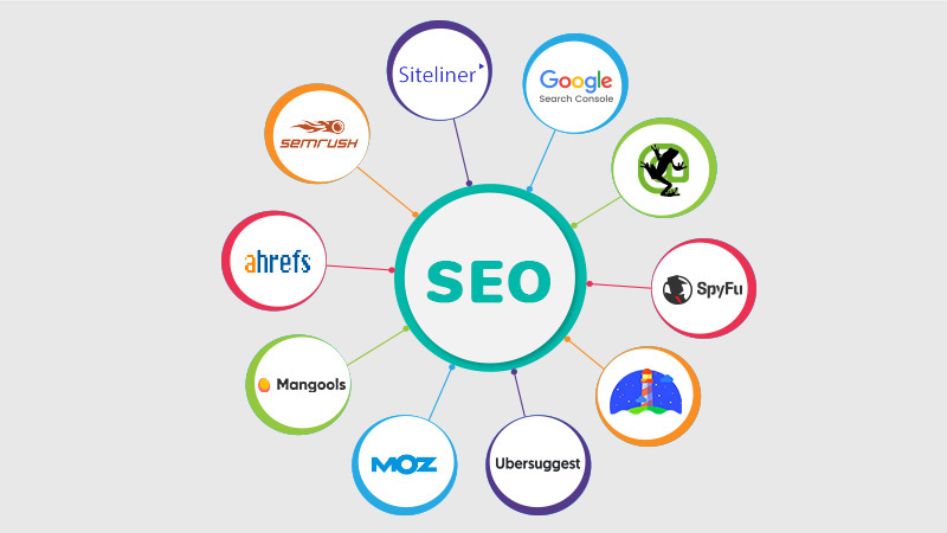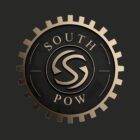Since SEO Tools are essential for beginners as they help them efficiently perform different tasks on search engines and rank higher in SERPs. Whether you’re a beginner in the world of SEO or a seasoned expert, you’ll find the tools on this list valuable to your arsenal.
While a lot of people may claim to know everything there is to know about search engine optimization, Google’s algorithms are constantly changing and becoming more complex. Therefore, you need the right tools to succeed in the highly competitive online marketing world.
In this article will look at seven online tools for improving your search engine optimization. Although these tools are free, we’re still talking about money here, so I’m sure you’ll find something you can use. But if you want a more comprehensive toolset, try our review of the best SEO tools on the market today.
TABLE OF CONTENTS:

Search Engine Optimization
SEO is one of the essential factors in driving traffic to your website. However, when it comes to getting traffic, the quality of your SEO matters much more than the quantity.
In today’s age of digital marketing, your website needs to be optimized so that it gets noticed by both search engines and consumers. Here is a list of seven easy-to-use SEO tools for beginners:
1. Google Keyword Planner
Above all, Keyword Planner is an essential tool for SEO professionals. It is a tool that allows you to enter a couple of keywords, see what search volumes there are for that keyword, and then drill down to see how many searches are being performed per month. It will also provide you with the estimated average monthly cost (CPC) that it would take to rank for that particular keyword and help you estimate the potential revenue you can expect from that keyword.
2. Google Trends
Secondly, Search engines like Google use advanced algorithms to find the best content for a particular keyword. The problem is not all websites are created equal. Some sites are designed better than others, and some can make you look like a spammer by ranking on the first page for a keyword.
However, optimizing your site for the keyword is the best way to avoid this. The easiest way to do this is by looking at the Google Trends chart for the keyword and seeing if there’s an uptick in searches for that specific term over time. If there’s an increase, chances are Google is crawling that site and using it for its rankings.
3. Hunter.io
Hunter.io has been designed to help novice SEO practitioners better understand how Google’s ranking algorithm works. The site was developed with SEO experts to give a deep insight into how the algorithm works. This includes a list of links pointing to the most authoritative content.

4. Google Search Console
Google Search Console for SEO Beginners can be confusing for beginners. But if you’ve never heard of it, there’s no better time to use it. The Google Search Console (GSC) is a dashboard that shows information about your site’s traffic and ranking. There are three different areas: Webmaster Tools, Indexation, and Performance.
In order to set up your account, you need to register at:
- Search Console with a Google Account.
- But you must log into your Google Account before accessing the platform.
- Now add your website to get real-time data of visitors.
5. GTmetrix
Another thing you need to know is that Google does not give a crap about your website’s quality, speed, or design. They just care how fast they can crawl your site and return results.
So, the first thing you should do to optimize your site is to ensure that Google can crawl it easily. In the beginning, this means making sure your page titles are descriptive, your pages have no errors, and your links are.
In addition, a good web design should be easy to navigate, but it should also be easy to find your site’s content. The best way to ensure this is to use a tool like GTmetrix.com to test your site’s load speed, usability, and accessibility. Once you’ve done this, you’ll have the data you need to adjust to make your site easier to use.
6. RankMath
Rank Math is also added to our list of SEO tools. I recently discovered RankMath and found it an exciting tool that can help boost your rankings in Google and other search engines.
Yet, it is a free online tool that allows you to enter your keywords and compare them with your competitors. RankMath will tell you which words to use in your page titles, meta descriptions, and even URLs based on how similar they are. This will help you optimize your content for the search engines, helping you rank higher and stay ahead of your competitors.
7. Ahrefs
Lastly, if you’re looking for an SEO tool that will help you with everything from keyword research to site audit, Ahrefs is a great place to start. This tool is known for its ability to uncover the most popular search terms in a given industry and what pages rank for them. It can even track how your keywords and competitors move up or down the search rankings.
Conclusion
In conclusion, if you use a tool, it needs to do two things: first, it should be easy to use, and second, it should be a free version. There are many SEO tools, but they are not all created equal. Some of them are very easy to use, and some of them are very expensive. Therefore, I mentioned above the best tools you can use to improve your SEO game.

FAQ
What is SEO?
Search engine optimization (SEO) ensures your website is visible in search results. It can be done by using keywords in your content.
How does SEO work?
Search engines like Google and Bing look at your website and determine its relevance to a specific search term. Then, they rank your site based on the quality of your content.
How do I know if my site is optimized for SEO?
You can check the page title, meta description, URL, and keyword density on your page. If you find any problems, you can correct them to ensure you are visible to search engines.
How do I make sure my content is relevant?
You can use the Google Keyword Planner to find popular keywords related to your business. Then, you can write content around those keywords.
What is the difference between SEO and PPC?
SEO is a long-term strategy, while PPC is a short-term strategy. SEO will help your site be visible in search results for a more extended time. The best way to use SEO is to use it as a long-term strategy. You will see a slight improvement if you use it as a short-term strategy.

